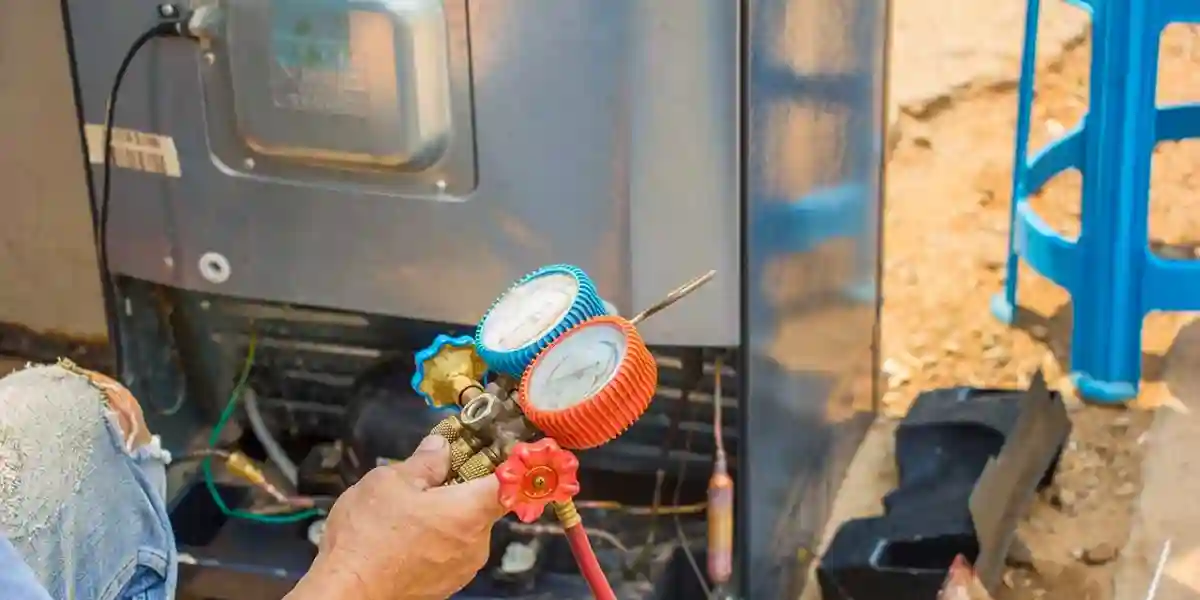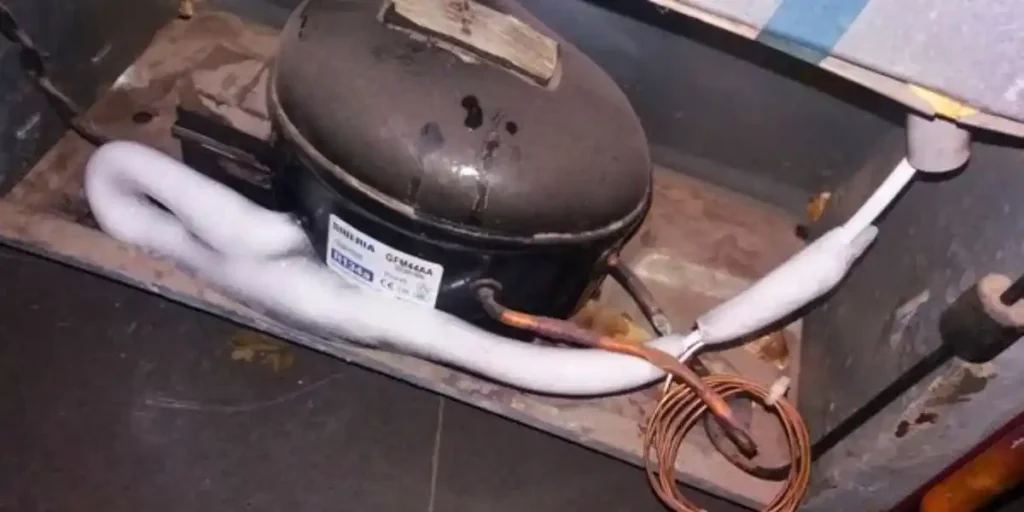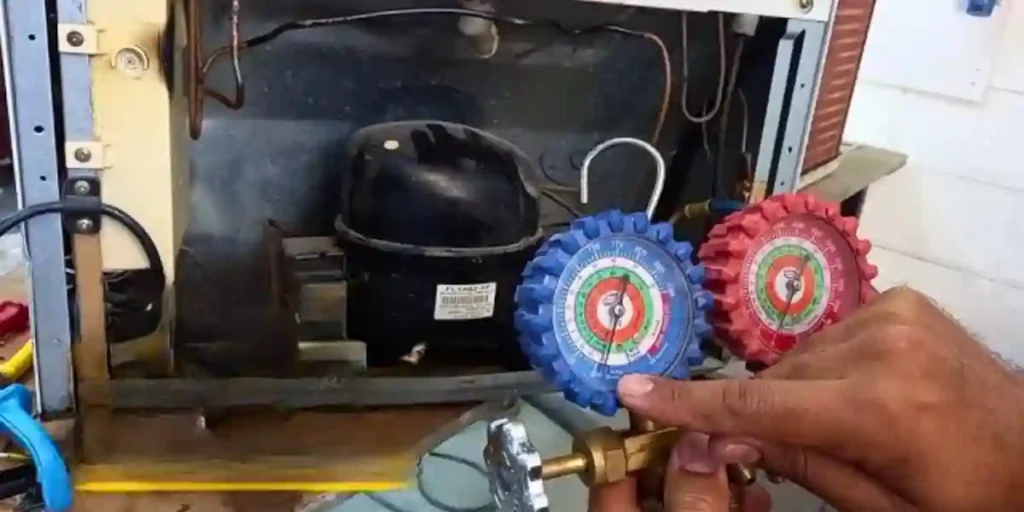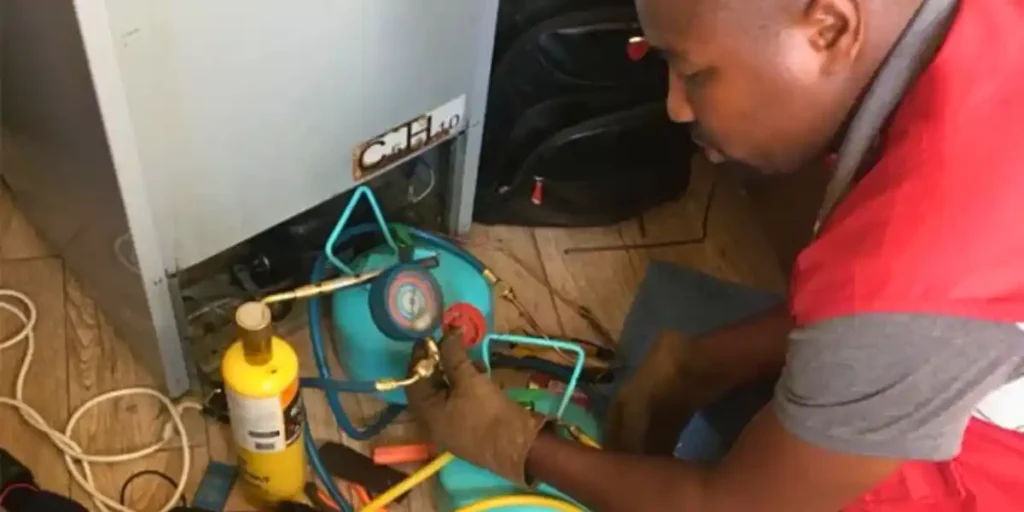How Do I Know If My Refrigerator Has Freon? Pro Insights
We may earn affiliate fees for purchases using our links (at no additional cost to you).

Wondering if your refrigerator is running low on Freon? Identifying Freon levels is crucial for optimal cooling. From professional tests to DIY methods and visual inspections, there are several ways to check.
Stay tuned as we delve into each method, helping you ensure your refrigerator is in top shape.
How Do I Know If My Refrigerator Has Freon?
Detecting the presence of Freon in your refrigerator involves a few steps. Here’s how you can do it:
Observe the Cooling Effect
The most straightforward sign of Freon in your refrigerator is its cooling effect. If your refrigerator is cooling your food effectively, it likely has Freon.
Listen for Unusual Noises
If your refrigerator is making strange noises, particularly a buzzing or humming sound, it could be a sign of a Freon issue. These sounds often come from the compressor where the Freon is stored.
Check for Temperature Fluctuations
Keep an eye on the temperature inside your refrigerator. If you notice that it’s not consistent, or if your food is spoiling faster than usual, it could be due to low Freon levels.
Monitor Energy Consumption
Refrigerators with low Freon levels tend to use more energy. If you notice a significant increase in your energy bill, it might be due to a Freon issue.
Smell for Chemical Odors
Freon has a strong chemical smell. If you notice this odor coming from your refrigerator, it could indicate a Freon leak.
Look for Oil Residue
Sometimes, a Freon leak can leave an oily residue around the refrigerator pipes. Check these areas for any signs of leakage.
Signs Your Refrigerator Has Freon Issues

Temperature Fluctuations
Typical signs: If your food is spoiling quickly or if ice is taking longer to form, these could be signs of temperature fluctuations in your refrigerator.
What data says: According to a study, inconsistent temperatures in your refrigerator can indicate low Freon levels.
Unusual Noises
Types of noises: If you hear buzzing or humming sounds coming from your refrigerator, pay attention. These are not normal.
Implications: These unusual noises could indicate a problem with the compressor where Freon is stored.
The compressor might be working harder to compensate for the low Freon levels.
Increased Energy Consumption
Statistics on increased energy use: Did you know that refrigerators with low Freon can use up to 25% more energy? That’s a significant increase!
Economic impact: This increase in energy consumption could add significant costs to your energy bill over time.
Odor or Leak
Identifying smells: A strong chemical smell coming from your refrigerator could indicate a Freon leak. Freon has a distinct, strong smell that’s hard to miss.
Safety considerations: Exposure to leaked Freon can cause health issues, so if you suspect a leak, it’s important to take immediate action. Consider hiring a professional to handle the situation safely.
Excessive Frost Buildup
If you notice an unusual amount of frost in your freezer, it could be due to low Freon levels. When there’s not enough Freon, the refrigerator can’t remove heat as effectively, leading to frost buildup.
Compressor Runs Continuously
The compressor is the part of the refrigerator that circulates the Freon. If it’s running all the time, it could be trying to compensate for low Freon levels.
Food Takes Longer to Cool
If you notice that your food or beverages take longer than usual to cool down, it could be a sign of low Freon.
Tests to Confirm Freon Levels in Your Refrigerator

You can confirm Freon levels through:
Visual Inspection
To confirm the Freon levels in your refrigerator, there are several tests you can perform physically:
Listen for Equalization
Turn off your refrigerator and listen for hissing or gurgling sounds. These indicate that Freon is present and equalizing within the system.
Keep in mind that silence doesn’t necessarily indicate a lack of Freon, as it may take several minutes for the pressures to equalize.
Check Cooling Coils
Feel the cooling coils at the back of your refrigerator. If they feel very cold to the touch and the airflow is blocked, Freon is likely present.
Monitor Temperature
If only the fridge section is warm and the freezer is not cooling properly, it could be a sign of a Freon leak.
However, it’s important to note that other factors can also affect cooling performance, so it’s best to consult a specialist for a proper diagnosis.
Professional Tests
Call a Technician
If you suspect a Freon leak or if your refrigerator is not cooling effectively, it’s recommended to call a qualified technician to assess and address the issue.
They have the expertise and tools to accurately measure and diagnose the Freon levels in your refrigerator.
DIY Tests
For a DIY test, the equipment needed is a leak detector or UV light kit. While its reliability is not as accurate as professional tests, they can give you a good indication.
What is the Recommended Gap Between a Refrigerator and the Side Wall?
The ideal gap between refrigerator and side wall is important for proper ventilation and performance. It is recommended to maintain a minimum gap of 2 inches to ensure efficient airflow and prevent heat build-up. This allows the refrigerator to function optimally and reduces the risk of overheating or compressor failure.
Factors to Consider Before Taking Action on a fridge that has Freon
Warranty Status
Before you decide to take any action on your fridge, check the warranty status. If your refrigerator is still under warranty, the repairs might be covered. This can save you a significant amount of money and hassle.
Age of the Refrigerator
The age of your refrigerator can also influence your decision. Older models are often more prone to issues and are less energy-efficient.
If your fridge is relatively new, it might be worth repairing. However, if it’s an older model, replacing it with a more energy-efficient one could be a better long-term investment.
Cost-Benefit Analysis
Perform a cost-benefit analysis to determine whether repairing or replacing your refrigerator makes more financial sense.
Consider the cost of repairs and compare it with the price of a new fridge.
Also, factor in potential savings from reduced energy consumption if you were to buy a new, more efficient model.
Availability of Professional Services

Check if there are reliable repair services in your area. If professional help is readily available and affordable, it might be worth considering repairs.
However, if professional services are scarce or expensive, replacement might be a more viable option.
Environmental Responsibility
If you decide to replace your refrigerator, ensure safe disposal of Freon. Freon is a refrigerant that can harm the ozone layer if not disposed of properly.
Many areas have recycling programs that safely dispose of appliances containing Freon.
Legal Regulations and Guidelines
Some regions have specific guidelines for handling refrigerants like Freon. Make sure you’re aware of these regulations before you attempt any repairs or disposal.
DIY Safety Precautions
If you’re considering handling repairs yourself, ensure you follow safety guidelines to avoid harm.
Working with refrigerants can be dangerous without proper training and equipment. Always prioritize safety when dealing with appliance repairs.
FAQs
What are the health risks associated with Freon leaks?
Can I replace Freon in my refrigerator myself?
Are there any eco-friendly alternatives to Freon?
What are the legal considerations around Freon disposal?
How do I safely dispose of a refrigerator with Freon?
Conclusion
Knowing if your refrigerator has Freon is as simple as flipping through your user manual or checking the identification label on the appliance.
If you suspect a Freon leak due to reduced cooling performance or strange sounds, don’t attempt DIY fixes—call a pro for a safe and effective solution.